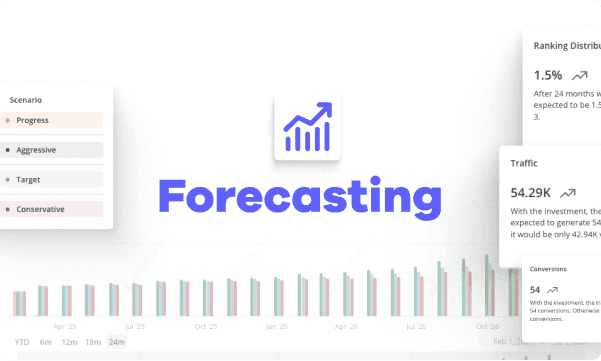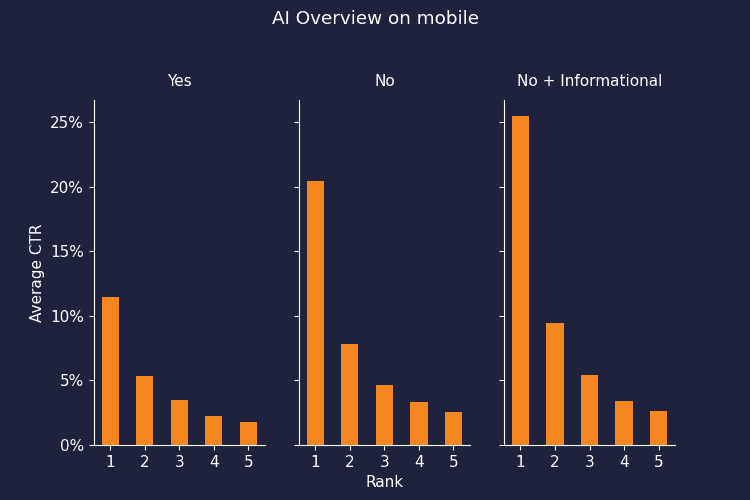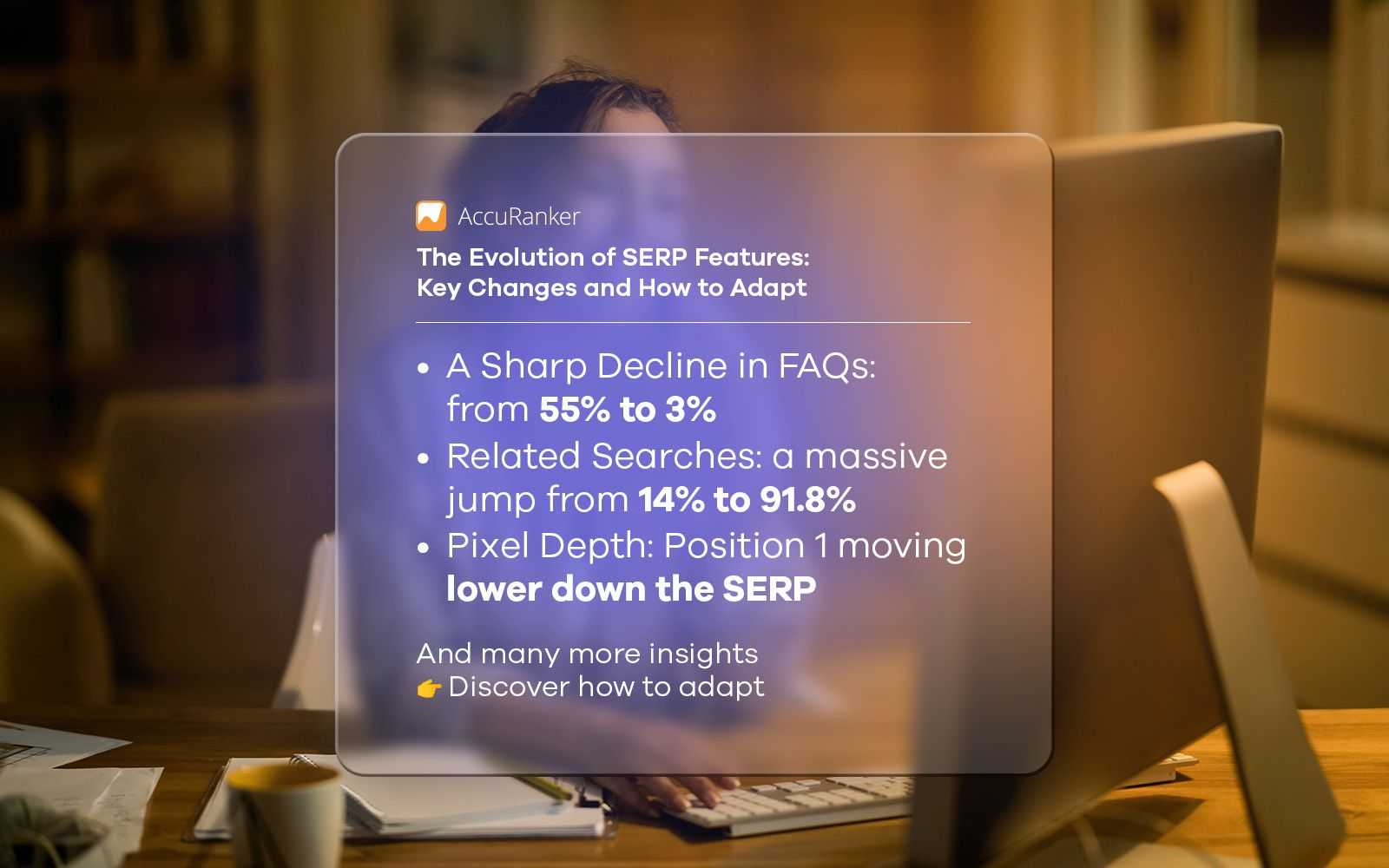Beyond Google: Why & How To Rank On Alternative Search Engines
Last updated on Wednesday, November 8, 2023

Users are switching to alternative search engines for two major reasons:
Better data privacy policies
A different search experience
For any business looking to boost organic visibility, this exodus of users from Google to its alternatives presents an opportunity to diversify traffic sources and gain access to niche audiences while facing less competition.
Read on. You’ll learn why these alternatives are growing, how they can support your marketing goals, and which ones are worth investing in.
The Rise Of Alternative Search Engines
Google might still be synonymous with search, but it’s only one of many options.
Region-specific search engines like Baidu (China), Naver (South Korea), and Yandex (Russia) have risen as strong contenders in their local markets while social media platforms like TikTok have already been dubbed the new search engine for Gen Z.
This cultural shift toward niche online platforms is reflected across the entire digital landscape, search engines included. Consumers prefer a Google alternative where they can find content that is more relevant to their interests and don’t have to worry about their data being misused.
These are the major factors driving demand for alternative search engines besides Google:
Data privacy and security. Users are averse to being tracked. So, they are seeking more control over how their data is used. The least they ask for? Transparency. But considering the big players are being shady about that, they’re deciding to go elsewhere.
Decline in quality of search results. The increase in ads and AI-generated content that "favor the algorithm" has made it even harder to find useful content on Google. The top results are rigged with keyword-stuffed content and Google heavily promotes its own products. This has frustrated many users who are now seeking an unbiased search engine that offers a better experience.
Ethical considerations. Users who prioritize the planet prefer to use products that align with their values. So, they’re ditching Google for ethical alternatives that donate funds to fight climate, have a zero-tracking policy, and aren’t “tainted by tax avoidance.”
Niche and industry-specific results. Sub-communities on social media and professionals in specialized occupations are flocking to search engines that primarily catalog information related to their interests. A good example is Consensus, which uses AI to generate evidence-based results from research papers.
The Search Engine Market (2023)
Google remains the dominant search engine across a large part of the world with a market share that has not fallen below 80% since 2015. In comparison, its closest competitor, Bing, has experienced a decrease in market share over the same time period with a slight boost after launching Bing Chat. Others such as Yahoo, Baidu, Yandex, and Duck Duck Go have been left the smallest pieces of the pie.

Source: Statcounter
This hasn’t changed much in the last five to 10 years. However, it’s worth noting that although these alternative search engines have yet to record any major increase in market share, they have their own competitive advantages.
For example, the growing number of users who are eager to protect their privacy online has enabled privacy-focused search engines to thrive. DuckDuckGo, Brave, and Neeva, to name a few, have put privacy front and center of their value proposition and users are buying into it.

Source: Statcounter
On the other hand, Baidu and Yandex are the leading search engines in China and Russia respectively. As of Q2 2023, Yandex accounted for over 63% of user visits which was almost twice the share of visits to Google. Likewise, in China, Baidu’s market share as of August 2023 was approximately 60% with Bing in second place at 14.9% and Google getting the smallest share (3.3%).
These insights show that Google’s dominance can be relative. If you are targeting users based in a specific location or who have specific preferences regarding privacy and environmental sustainability, then you need to discover where they search for information online and diversify your SEO strategy to reach them on those platforms.
How To Rank On Alternative Search Engines
When it comes to ranking on alternative search engines besides Google, it is important to take note of both the similarities and differences in the search engine results pages (SERPs) features, indexing methods, and ranking factors.

For instance, based on a review of the first five search results for “social media management tools”, it’s evident that domain authority, content quality, and relevance to search intent are similar ranking factors across DuckDuckGo, Brave, and Ecosia.
However, you’ll also notice that the results are ranked differently across the board and that these differences are more nuanced:
DuckDuckGo values quality content over your backlinks profile
Bing places weight on social engagement and local businesses listed on Bing Places
Baidu prioritizes sites with content written in the Chinese language, penalizes duplicate content, and places more weight on backlinks from China-based websites
The weight placed on each ranking factor varies depending on the unique algorithm of the search engine being used. With that in mind, here are the best practices for ranking on alternative search engines.
Research the ranking factors of each search engine
This is the most important step in optimizing your website for alternative search engines as it helps you understand the proprietary algorithm of each engine.
Study the search engine's official documentation and any available information about its priorities. With DuckDuckGo, for example, you need to add your website to Apple Maps to rank in local search results. Brave Search, in contrast, gives its users a tool called Goggles which offers a set of filters they can apply to personally rerank pages in the top SERPs.
Continuous research and keeping an eye on algorithm updates will be essential to maintaining a strong presence on any alternative engine you choose.
Submit your website to the search engine's webmaster tool
Doing this holds considerable weight because it directly informs the search engine of your website's existence and makes it easier to index your website.
For alternatives such as Bing, DuckDuckGo, Yahoo, and Ecosia, which pull results from the same search index, you can submit your sitemap to the Bing webmaster tool. However, Yandex and Baidu have their independent webmaster tools while Brave requires that you enable its Web Discovery Project (WDP) in the Brave browser to automatically index your site.
Each engine has its own submission guidelines and requirements, so make sure to adhere to them.
Improve web structure for better user experience
A well-structured website helps users navigate your site and keeps it organized. Here are a few ways to improve your site’s performance:
Include relevant and contextually appropriate links that connect related content within your site
Use content delivery networks (CDNs) to optimize page load times
Ensure your site is responsive across various screen sizes since many search engines prioritize mobile traffic
Check for and fix all broken links
Implement schema markup to provide rich snippets (e.g., “people also ask” and featured snippets) in search results
Keep publishing high-quality and authoritative content
Alternative search engines are more likely to rank websites with high-quality content, even if those websites do not have a large backlink profile. So, as most experts will advise, focus on creating high-quality content that is relevant to both the keywords and search queries that you want to rank for.
Also, consider the different types of content that the search engine ranks and make sure to analyze and optimize your content accordingly.
Add your location data to the search engine’s directory
Similar to Google My Business, Bing has a directory for business listings known as Bing Places which helps to maximize your visibility in local search results.
Also, add location data to your website, and be sure to use location-specific keywords. If you intend to rank on a region-specific search engine like Baidu, accruing backlinks from local websites can help to increase your position in search results.
Besides the variation in weight placed on different ranking factors, general SEO best practices will take you far. Then you can supplement your efforts with specific best practices for each search engine.
The 8 Best Alternative Search Engines (2023)
Brave Search

From a user’s perspective, Brave is the best alternative search engine because it is privacy-focused and provides a great search experience. Its SERPs feature a summarized answer to the search query, discussions from related Reddit threads, and YouTube videos that match the search intent.
In addition to these, Brave has created its own search index which means that, unlike some other alternatives, it doesn’t pull query results from Google or Bing. It has also experienced a steady growth in daily active users with a significant percentage of its core audience based in the US.
DuckDuckGo
DuckDuckGo has established a niche for itself as a privacy-focused alternative to Google and is arguably the most popular option among users who are concerned about online privacy. Due to its privacy practices, it is also known as an unbiased search engine because it doesn’t include personal factors such as search history when ranking results. This levels the playing field for websites looking to improve organic search visibility. It also displays results from Bing and Yahoo which means you have less work to do if your site is already optimized for those search engines.
Bing
Bing is the second most popular search engine in countries such as the US, Canada, France, Germany, and the UK. In March 2023, it crossed 100M Daily Active Users with up to one-third converting after the release of the new AI-powered Bing. Doing SEO on Bing is also rumoured to better and easier than on Google as it is said to be much more transparent about its indexing priorities and ranking factors. However, its SERPs prioritize ads before organic results and this could be a hindrance to users who despise ads.
Ecosia
Ecosia advocates for reforestation and states that 100% of its profits support climate action. Its user base is drawn to eco-friendly and sustainable content, offering a niche audience for businesses in these industries. It uses Microsoft Bing to power its search results which means that if you rank on Bing, you are likely to rank on Ecosia—and just like Bing, it prioritizes trustworthy content, exact keyword focus, and social media engagement as ranking factors.
Yandex
Yandex is the largest search engine in Russia with a 64.85% market share and 0.15% in the US. This is a great alternative if you’re looking to expand into Russian-speaking territories. In addition, Alex Buraks, an SEO expert, recently shared a detailed X post on the leaked ranking factors for Yandex to give you a headstart. Some include page ranks, age of links, percentage of organic traffic, and average domain positions across all queries.
Baidu
As one of the few region-specific alternatives, Baidu dominates the Chinese search market, making it a vital platform for businesses targeting Chinese-speaking audiences. To excel on Baidu, you should focus on creating high-quality, localized content in Mandarin, optimizing for mobile users, and building a strong backlink profile from authoritative Chinese websites. Additionally, to maintain visibility on Baidu, you must prioritize web security and comply with Chinese internet regulations.
Social search engines
Tiktok. This is a unique alternative, first for its short-form, relatable video content that has a tendency to go viral, and second for the way users participate in communities based on specific topics. While the priority for ranking organic content leans heavily toward creativity, best practices such as using keywords, good hooks, and sharing relevant niche video content can land you on the coveted For You Page.
Reddit. As an alternative search engine, Reddit offers unique benefits through its ability to drive organic traffic and provide valuable backlinks. It has an active and engaged user base with diverse communities discussing a wide range of topics. You can leverage branded keywords in niche-specific subreddits to build awareness for your product and ensure your content shows up in discussions within the community. Also, keep in mind that a lot of searchers looking for unbiased opinions often site:search reddit.com with their target keywords.
Why Is It Important to Optimize Your Website For Search Engines Outside Of Google?
The primary benefit of optimizing your website for alternative search engines is that you can broaden the reach of your content while getting access to niche audiences.
Increasing your visibility in multiple niche markets will also reduce your dependency on a single platform and help you gain a competitive advantage over businesses that choose to ignore Google alternatives.
Lastly, keep in mind that there are millions of people who actively use these other search engines. So, if you make no effort to rank on these platforms, then you are ignoring one of your biggest assets (your customers) and doing your businesses a disservice.
Conclusion
Alternative search engines are gaining popularity due to a number of factors—including concerns about privacy and users craving a different search experience besides what Google offers. As a result of this growth, businesses like yours can tap into niche markets and invest long-term in building visibility across multiple platforms.
This calls for an essential update in your SEO strategy.
Using free tools such as Accuranker’s live SERP checker, you can gain comprehensive SEO insights on your target keywords and competitors based on data from any search engine.

Article by:
Kachi Eloka
Content Writer
Kachi Eloka is a research nerd who writes long-form content for B2B SaaS and Martech companies.
She covers topics related to search engine optimization, e-commerce, content operations, and social media marketing. In her free time, you’ll catch her watching films or reading fiction.


